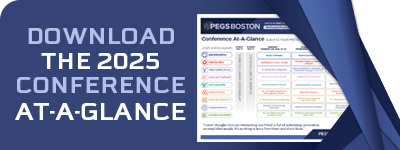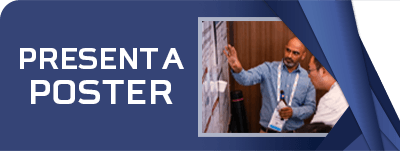Cambridge Healthtech Instituteの第15回年次
Antibodies for Cancer Therapy
がん治療用抗体
Driving Breakthrough Therapies
画期的治療薬の推進
2025年5月12日 - 13日 EDT(米国東部標準時・夏時間)
Sunday, May 11
1:00 pmMain Conference Registration
2:00 pmRecommended Pre-Conference Short Course
SC2: Safety & Efficacy of Bispecifics and ADCs
*Separate registration required. See short course page for details.
Monday, May 12
7:00 amRegistration and Morning Coffee
THE NEXT WAVE IN ANTIBODY-BASED THERAPIES: RADIOPHARMACEUTICALS AND PROTEIN DEGRADERS
Development and Translation of Radiolabeled Antibodies for Cancer Therapy and Diagnostics
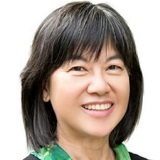 Anna M. Wu, PhD, Chair and Professor, Immunology & Theranostics, Center for Theranostic Studies, City of Hope
Anna M. Wu, PhD, Chair and Professor, Immunology & Theranostics, Center for Theranostic Studies, City of Hope
Recent approvals of radiopharmaceuticals for prostate and neuroendocrine cancers have renewed interest in antibodies for targeted radionuclide therapy. Advantages include the potential for paired imaging to evaluate target expression, delivery and response to radioimmunotherapy (“theranostics”); disadvantages include extended circulation of antibodies leading to hematologic toxicity. PK-optimized engineered antibodies and fragments can provide novel agents for non-invasive imaging (of tumors and immune cells) and localized delivery of therapeutic radionuclides.
Development and Optimization of Radiopharmaceuticals for Combination with Immunotherapies
 Zachary S. Morris, PhD, MD, Department Chair and Endowed Professor of Human Oncology, University of Wisconsin Madison
Zachary S. Morris, PhD, MD, Department Chair and Endowed Professor of Human Oncology, University of Wisconsin Madison
Radiopharmaceutical therapy can be used to deliver radiation to tumor sites throughout a patient’s body in settings of metastatic disease while minimizing dose to healthy tissue. Radiopharmaceuticals can elicit immunogenic tumor cell death and phenotypic changes in surviving tumor cells as well as inflammatory changes in the tumor microenvironment, and this may alter tumor immunogenicity in a way that enables cooperative therapeutic effects in combination with certain immunotherapies. Further preclinical and clinical research is needed to clarify mechanisms whereby radiopharmaceutical therapies may affect anti-tumor immunity and response to cancer immunotherapies.
AbTACs, KineTACs & TrainTACs: Three Platforms for Extracellular Targeted Protein Degradation
 Josef Gramespacher, PhD, Co-Founder, EpiBiologics
Josef Gramespacher, PhD, Co-Founder, EpiBiologics
By ablating all disease-associated functions of a given protein at once, targeted protein degradation has emerged as a promising therapeutic strategy to overcome limitations of traditional occupancy-based inhibitors To this end, at EpiBiologics, we are developing three fully recombinant and modular bispecific antibody-based platforms-AbTACs, KineTACs, & TrainTACs-that can be applied to effectively mediate degradation of cell-surface and extracellular proteins.
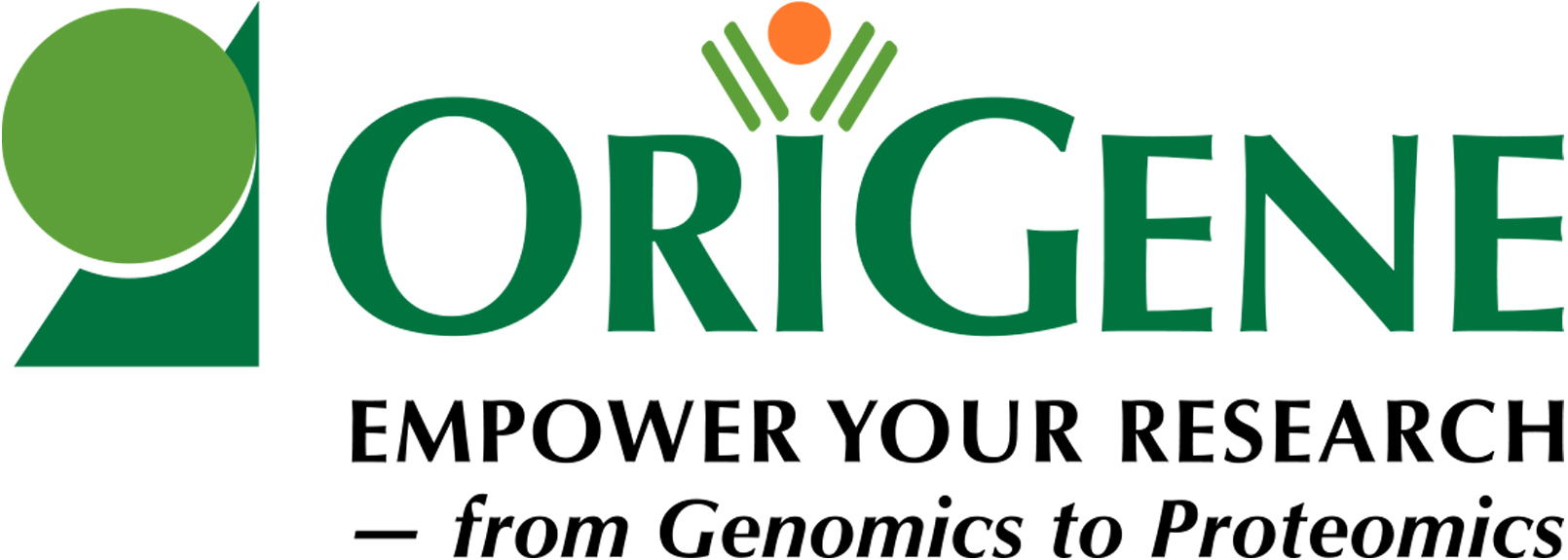 Unmask Antibody Specificity: A Novel High-Density Protein Microarray Platform for Diagnostic and Therapeutic Applications
Unmask Antibody Specificity: A Novel High-Density Protein Microarray Platform for Diagnostic and Therapeutic Applications Antibody specificity is critical for ensuring accurate diagnostic and therapeutic outcomes. Cross-reactivity, however, poses significant risks, including erroneous results and potential misdiagnoses. To address this challenge, OriGene has developed high-density protein microarrays featuring 10K and 17K protein chips, enabling comprehensive antibody specificity testing. These arrays allow for rapid profiling of antibody binding behavior. This approach streamlines the selection of optimal antibodies from multiple candidates within a development pipeline. This presentation will introduce the features and capabilities of this novel platform. Two case studies will highlight its value, showcasing instances where the platform not only revealed antibody non-specificity but also identified unsuspected cross-reacting targets.
10:30 amNetworking Coffee Break
MITIGATING RISKS AND MAXIMIZING PATIENT OUTCOMES IN ANTIBODY THERAPEUTICS
Nonclinical Immunogenicity Risk Assessment and Mitigation for Bispecific Antibodies
 Paul J. Carter, PhD, Genentech Fellow, Antibody Engineering, Genentech
Paul J. Carter, PhD, Genentech Fellow, Antibody Engineering, Genentech
Immunogenicity risk assessment and mitigation is desirable to aid successful engineering of protein therapeutics including antibodies. Multiple in silico and ex vivo assays suggest that some mutations (knob-into-hole and Fab) used to facilitate in vivo assembly of bispecific IgG represent a low risk for immunogenicity. Common light chains may reduce the immunogenicity risk of bispecifics. Key immunogenicity challenges for engineered proteins therapeutics will be discussed including steps towards addressing them.
Advancing TCRm Antibody Therapy: Insights and Lessons Learned for Maximizing Patient Outcomes
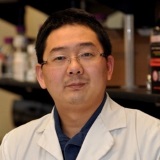 Scott Chunhua Shi, PhD, Associate Director Institute & Head of Biological Discovery, ORBIT Therapeutic Discovery, MD Anderson Cancer Center
Scott Chunhua Shi, PhD, Associate Director Institute & Head of Biological Discovery, ORBIT Therapeutic Discovery, MD Anderson Cancer Center
Tumor cells present specific peptides on HLA-I molecules, which can be targeted by TCRm antibodies to address otherwise undruggable proteins. However, the limited peptide copies and the specificity challenges of targeting these epitopes pose therapeutic hurdles. This presentation will share key insights and lessons learned from our various projects across different development stages, highlighting how we aim to overcome these challenges to ultimately benefit patients.
12:00 pmSession Break
12:10 pmLuncheon Presentation (Sponsorship Opportunity Available) or Enjoy Lunch on Your Own
1:10 pmSession Break
DESIGN AND ENGINEERING OF ANTIBODY-CYTOKINE FUSIONS/MIMETICS
Discovery and Design of Anti-Cytokine Antibodies for Cancer Immunotherapy
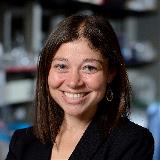 Jamie B. Spangler, PhD, Associate Professor, Biomedical and Chemical & Biomolecular Engineering, Johns Hopkins University
Jamie B. Spangler, PhD, Associate Professor, Biomedical and Chemical & Biomolecular Engineering, Johns Hopkins University
Cytokines coordinate all facets of immune biology and thus harbor great therapeutic potential. However, endogenous cytokines are poorly suited as drugs due to their pleiotropy and poor pharmacological properties. Complexing cytokines with anti-cytokine antibodies enhances their specificity and developability, but translating a mixed cytokine/antibody complex is impeded by stability concerns. We overcame these limitations by engineering single-agent cytokine/antibody fusion proteins (immunocytokines) that bias the immune response for various disease applications.
Not Just a Targeted Cytokine: Functionally Specific IL-18 (F-18) Fused to Anti-PD-1 is a Bifunctional Checkpoint Inhibitor with Enhanced Anti-Tumor Activity
 Brian A. Rabinovich, PhD, CSO, R&D, Fuse Biotherapeutics
Brian A. Rabinovich, PhD, CSO, R&D, Fuse Biotherapeutics
Anti-PD-1 antibodies demonstrate strong cPOC, but innate/acquired resistance remains a major challenge. Fusion of cytokines including IL-2 /IL-15 variants to anti-PD-1 enhances the activity of antigen-experienced T cells enriched for tumor specificity but the nature and/or potency of the cytokine negates checkpoint inhibition due to toxicity-and can drive terminal exhaustion. We engineered IL-1BP resistant/IL-18 variants attenuated >10,000 fold that can be dosed safely to levels consistent with checkpoint inhibition and regain IL-18 activity when bound to PD-1+/IL-18R+ T cells to preserve/augment CD8+ PD1+ TpEX, both enriched for tumor specificity and directly responsible for the therapeutic effect of PD-1 antagonism.
Protein Engineering Using Novel Chemical Methods to Access PD1-Based Immunocytokines
 Arnaud Goepfert, PhD, Director, Protein Sciences, Bright Peak Therapeutics
Arnaud Goepfert, PhD, Director, Protein Sciences, Bright Peak Therapeutics
Antibody-cytokine conjugates leverage orthogonal mechanisms of action (MoA) in one molecule to induce potent antitumor immune responses. At Bright Peak, we generate immunocytokines through site-specific chemical conjugation of cytokine to “off-the-shelf” human IgG antibodies. During the talk, I will focus on our PD-1-targeting conjugates and share compelling preclinical data supporting the future development of BPT567, a PD1-IL18 immunocytokine.
2:50 pmSponsored Presentation (Opportunity Available)
3:20 pmNetworking Refreshment Break
4:05 pmTransition to Plenary Keynote Session
PLENARY KEYNOTE SESSION
The Role of Protein Engineering in Developing New Innovative Modalities
 Puja Sapra, PhD, Senior Vice President, Head R&D Biologics, Engineering and Oncology Targeted Discovery, AstraZeneca
Puja Sapra, PhD, Senior Vice President, Head R&D Biologics, Engineering and Oncology Targeted Discovery, AstraZeneca
Advances in protein engineering technologies have revolutionized biologics design, paving the way for new innovative drug modalities. This talk will highlight key advancements in the field of protein engineering that have enabled these new modalities to enter the clinic and provide benefit to patients. The talk will also explore the impact of machine learning-enabled deep screening technology on hit identification, lead optimization and development of antibody-based therapies.
YOUNG SCIENTIST KEYNOTE
Antibody-Lectin Chimeras for Glyco-Immune Checkpoint Blockade
 Jessica C. Stark, PhD, Underwood-Prescott Career Development Professor, MIT
Jessica C. Stark, PhD, Underwood-Prescott Career Development Professor, MIT
Despite the curative potential of cancer immunotherapy, most patients do not benefit from treatment. Glyco-immune checkpoints-interactions of cancer glycans with inhibitory glycan-binding receptors called lectins-have emerged as prominent mechanisms of resistance to existing immunotherapies. I will describe development of antibody-lectin chimeras: a biologic framework for glyco-immune checkpoint blockade that is now moving toward the clinic.
5:55 pmWelcome Reception in the Exhibit Hall with Poster Viewing
-jpg_763e004d-1a72-4a71-8e72-41737f8bc448.jpg)
7:20 pmClose of Day
Tuesday, May 13
7:30 amRegistration and Morning Coffee
MENTORING MEET-UP
Creating and Fostering a Productive and Effective Mentor-Mentee Relationship
This meet-up is designed for senior scientists that are interested in becoming a mentor for junior scientists: IN-PERSON ONLY
- What it takes to be a mentor
- Finding the right match
- Goal of Mentoring is to provide support for professional career development and informal coaching
- The Mentor:Mentee relationship: you get out of it what you put into it.
- Establishing boundaries and clear action items to make the most of the experience.
ADVANCES IN T-CELL ENGAGERS AND CO-STIM PATHWAYS
ISB 2001, a First-in-Class Trispecific BCMA and CD38 T Cell Engager Designed to Overcome Mechanisms of Escape from Multiple Myeloma Treatments
 Mario Perro, PhD, Head of Biologics Research, Ichnos Glenmark Innovation
Mario Perro, PhD, Head of Biologics Research, Ichnos Glenmark Innovation
Downregulation of targets limits the efficacy of monotargeted T cell engagers (TCE). ISB 2001, a first-in-class TCE targeting both CD38 and BCMA, demonstrated superior tumor cytotoxicity in vitro, in vivo, and ex vivo using patient samples when compared to teclistamab. Clinically, ISB 2001 demonstrated an overall response rate of 75% across all dose levels and a favorable safety and tolerability profile in heavily pretreated patients with r/r MM.
Bispecific Vγ9Vδ2-T Cell Engagers for Cancer Immunotherapy
 Hans van der Vliet, MD, PhD, CSO, Lava Therapeutics
Hans van der Vliet, MD, PhD, CSO, Lava Therapeutics
Vγ9Vδ2-T cells constitute a relatively homogeneous population of pro-inflammatory immune effector cells. This presentation will focus on the preclinical and early clinical development of bispecificVγ9Vδ2-T cell engagers as a novel approach for cancer immunotherapy.
Engineering Multi-Pathway Inhibition in the Same Molecule: PD1/PD(L)1 x VEGF
Daniel Chen, MD, PhD, Founder & CEO, Synthetic Design Lab
- Technology, applications and advantages of multi-pathway targeting
- How does the strategy enhance anti-tumor immune responses, overcome resistance mechanisms and reduce toxicity?
- What’s happening in the tumor microenvironment?
- Challenges in maintaining binding affinity and specificity for multiple targets
- Reviewing data on efficacy of combined PD-1/PD-L1 and VEGF inhibition
- Ongoing clinical trials of promising candidates
- Comparison of single molecule vs combination therapy
10:35 amCoffee Break in the Exhibit Hall with Poster Viewing

Harnessing Protein Engineering to Modulate Immune Responses via CD28 Costimulatory Pathways
 Gregory L. Moore, PhD, Senior Director, Protein Engineering, Xencor, Inc.
Gregory L. Moore, PhD, Senior Director, Protein Engineering, Xencor, Inc.
T cells require T cell receptor engagement by peptide-major histocompatibility complexes coupled with CD28-mediated costimulation for optimal activation. Tumor cells typically lack expression of CD28 ligands, so we hypothesized that CD28 signaling at the T cell/tumor cell interface could enhance anti-tumor activity. We generated tumor-associated antigen (TAA) x CD28 bispecific antibodies that provide CD28 costimulation only in the presence of TAA and TCR engagement and show enhanced activity over traditional bispecifics.
Selective Tumor Regression in MUC16-Positive Lung and Pancreatic Cancer Models Using a Bispecific Antibody Apoptosis Trigger, Cancerlysin IMV-M
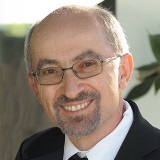 Victor S. Goldmacher, PhD, CSO, R&D, ImmuVia
Victor S. Goldmacher, PhD, CSO, R&D, ImmuVia
The first-in-class bispecific antibody IMV-M, targets MUC16 and death receptor 5. It is uniquely designed to cluster DR5 effectively, but only in MUC16-positive cancer cells, directly activating apoptosis to induce cancer cell death. This mechanism differentiates IMV-M from ADCs, which rely on cytotoxic drugs, and from bispecific immune cell engagers. IMV-M offers the advantage of avoiding resistance to chemotherapy and reducing the side effects associated with these therapies. IMV-M has demonstrated potent efficacy in various xenograft cancer models and shown safety in non-human primates.
12:15 pmSponsored Presentation (Opportunity Available)
12:45 pmSession Break
12:50 pmLuncheon Presentation (Sponsorship Opportunity Available) or Enjoy Lunch on Your Own
1:50 pmClose of Antibodies for Cancer Therapy Conference
6:30 pmRecommended Dinner Short Course
SC6: Developability of Bispecific Antibodies
*Separate registration required. See short course page for details.
* 不測の事態により、事前の予告なしにプログラムが変更される場合があります。
アジェンダ・講演者・スポンサー更新
2025年 プログラム
表示する:

工学ストリーム

腫瘍ストリーム

多重特異性ストリーム

免疫療法ストリーム

発現ストリーム

分析法ストリーム

免疫原性ストリーム

新興治療ストリーム

機械学習ストリーム

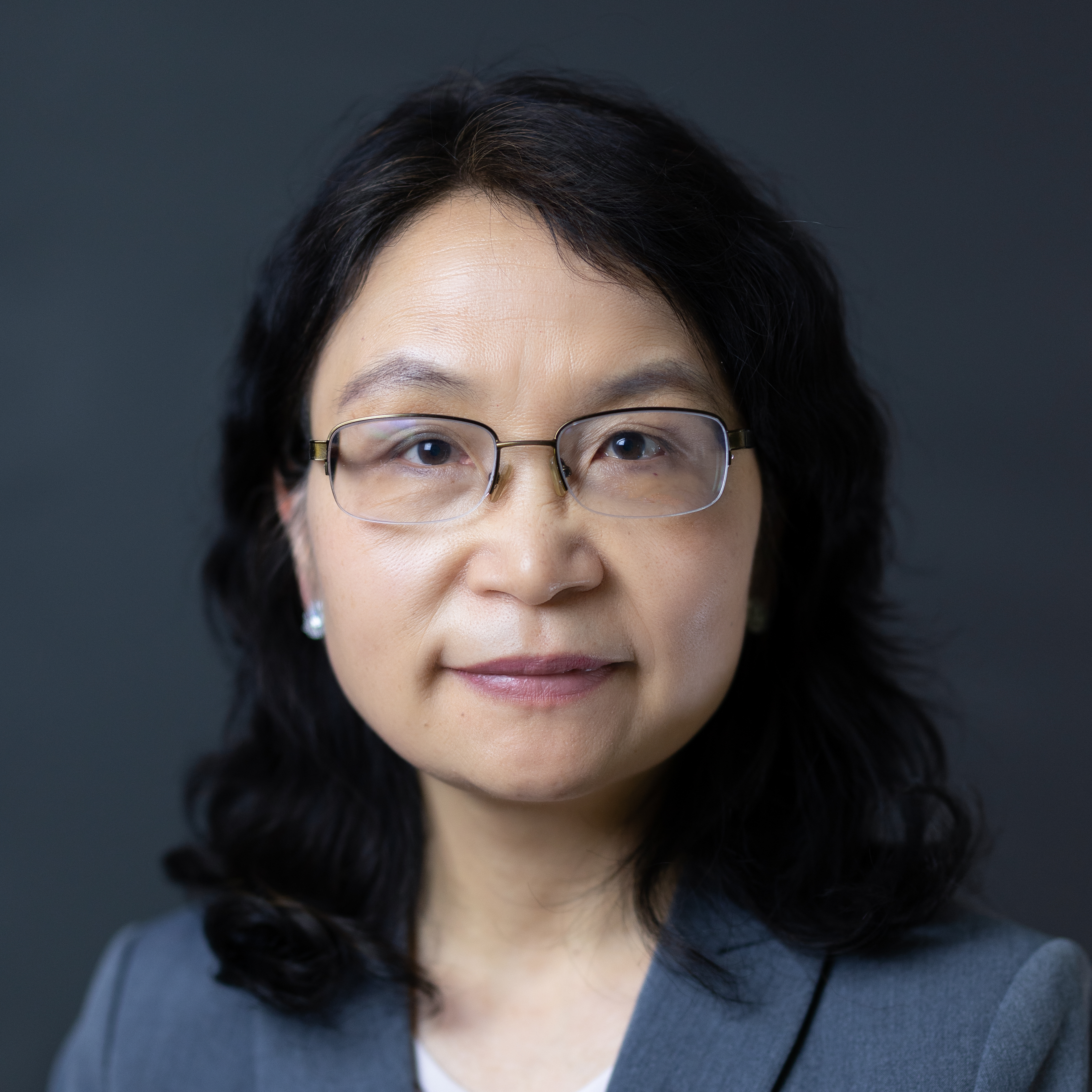





 Talk Title to be Announced
Talk Title to be Announced



